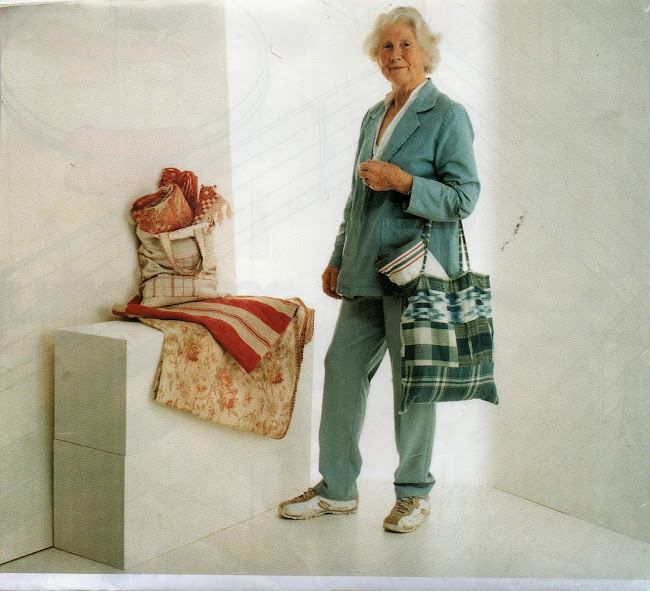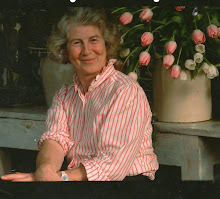As I have almost finished my business in the wine vaults of my own house, next door, it has made me recall those early days when you could go to France and fill a van with Brocante and textiles, just driving to Paris from Calais for a weekend and stopping on the way, wherever the chair stood outside on the pavement, with an old shed stuffed with junk behind and an old man with a hat smoking his pipe.
Since then, things have changed a lot, the old dealers have packed up because the new by-passes steer the traffic away from the village streets and you are more likely to find big old barns near the towns with parking for lorries and vans and keen traders who want the last Franc out of you. It's the same with the wonderful roadside cafes where all the tradesmen and commercial travellers stopped for a whopping lunch of three major courses of excellent home cooked peasant fare and free bottles of local plonk free for all on the table, and stout ladies beamed across the crowded dining rooms, wiping the tables down with a flick of the torchon tea towel. They are now few and far between and many drivers go for the quick and easy supermarkets that have massive parking areas and big choice of food outlets.
Dealing with the wily old antique dealers in rural areas (la France Profonde), I soon discovered that it was best to ask casually for a price on any likely item, and then go on to enquire about the more desirable lots, one by one, till the dealer got a bit anxious that he had failed and would make no sales to this difficult- to-please English lady! Then, having chatted in general, I would ask the leading question, 'how much for that lot over there? i.e. usually a big pile of linen and laundry in a dishevelled stage. The next round of the game was for me to hold one or two pieces up, tut-tutting at the holes, repairs and dirt, and surprise the seller by saying I would probably take the lot and would sort it out later - this disarmed the seller, completely, who was expecting me to choose the best and leave the faulty, which would be very unsaleable and so much dross, and in the excitement of selling the whole lot (men dealers hated textiles and household linens anyway) they would quote me a very give-away price, bundle it all into black refuse sacks and say good riddance to a shameful lot which destroyed the beauty of their untidy sheds. I did the same at the very big commercial fairs, trade only, where dealers would arrive with a van or pick-up with the contents from a farm or vineyard, often from dusty sheds and chicken houses and wanting to shift several hundred linen pieces going back to the last century, and despised by the young people who inherited the contents of the old farms and couldn't wait to clear " poor old Granny's peasant stuff" - they were, sadly, ashamed of the rustic look and the hand-sewn finish of shirts and sheets and preferred cheap poly-cotton and nylon from Spain and Portugal.
The many convents and priories which were the sources for a lot of the flax and hemp, the growing, the weaving and the sewing of it all, were disbanding, with their laundries and workshops and hospitals, and I used to see whole heaps of their work piled high on the stone floors of the local market halls - sad and unwanted by the French, though eagerly sought by the English and Americans when washed, repaired and properly presented. It was quite a lot of hard work, but I have always been super-economical and a great re-cycler and it really did give me huge satisfaction when many very well-known and fashionable women
used my stock for their wardrobes and linen rooms.
 |
| Washday at Freshford |


No comments:
Post a Comment